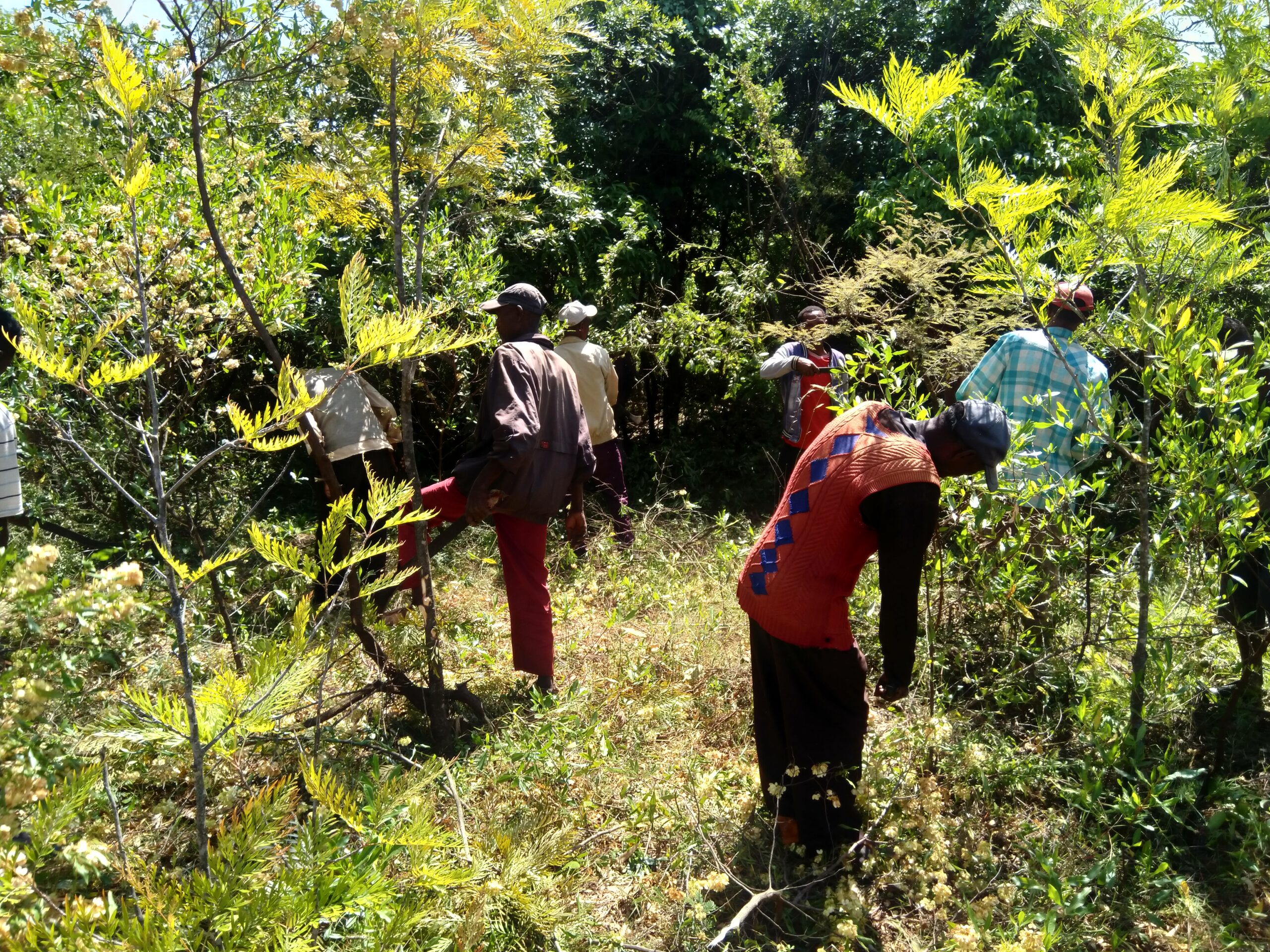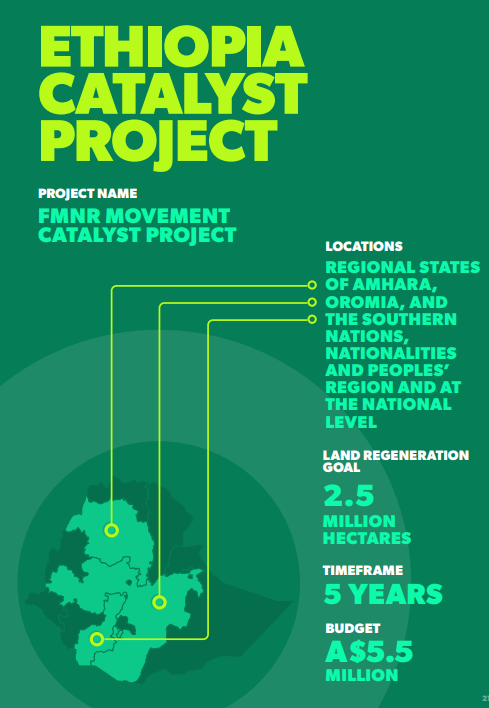Ethiopia
Why Ethiopia?
Every year, thousands more hectares of forest are lost as a growing population drives increased demand for crop and grazing land, timber and firewood. This is having a devastating effect on the communities who depend on the land for their survival. They are increasingly experiencing loss of soil fertility leading to declining farm productivity, and more frequent and intense droughts and floods.
These worsening conditions are deepening poverty, which is driving many families to migrate to other parts of Ethiopia in search of a better life. The Ethiopian Government has recognised the need for urgent action and has made an international commitment through the Bonn Challenge to restore 15 million hectares of degraded land by 2030.

Over 85% of Ethiopia’s land area is moderately to severely degraded.
According to the FAO, over 2.19 million hectares of forest area were lost between 1990 and 2020.
Approximately 75% of land in Ethiopia is affected by desertification.

Ethiopia FMNR Catalyst Project
This project will contribute to the national FMNR target by introducing or strengthening FMNR activities within existing child sponsorship-funded Area Programs and grant-funded projects in Afar, Amhara, Central Ethiopia, Oromia, South Ethiopia, Southwest Ethiopia and Tigray. These locations have been prioritised because they have some of the highest proportions of degraded land in Ethiopia.
2.5 million
hectares of land under restoration
5 years
The project will be running from June 2023 – July 2028
Project outcomes
In order to regenerate 2.5 million hectares of land, the project aims to address current land degradation issues in the prioritised project locations, as well as mobilise partners and communities to spread FMNR beyond these sites. By scaling FMNR in this way, communities experiencing significant challenges due to land degradation can mitigate and adapt to climate change, rapidly restore their environments, and better provide for their children.
World Vision’s direct FMNR programming reach is expanded.
Increased adoption and promotion of FMNR by external partners.
Increased organic spread and adoption of FMNR by individuals at the community level.
Strengthened enabling environment to promote FMNR scaling in Ethiopia.
Get involved
Anyone can join the global FMNR movement by learning the technique, spreading awareness, participating in local projects, or supporting projects that directly implement FMNR to restore degraded lands and build sustainable futures for children and the communities they live in.